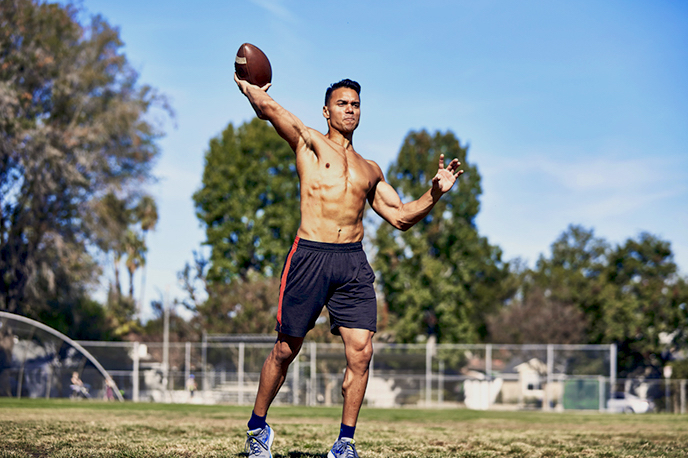
Taking a playful approach to learning new skills isn’t just for the fun of it. There’s substantial evidence that proves the power of play to reduce stress, enhance performance, and forge social bonds that boost creativity and innovation.
In fact, according to Scientific Reports, improved health and wellbeing can be attributed to spending more time in nature – 120 minutes a week to be exact.
Furthermore, play is important “medicine” when taking on aches, pains, and bigger physical challenges and traumas. It’s the spoonful of sugar that helps us process intense and uncomfortable sensations.
Play is the ingredient that helps us overcome, and Tune Up Fitness® classes, immersions and trainings are packed with play. When the going gets tough, we often get silly.
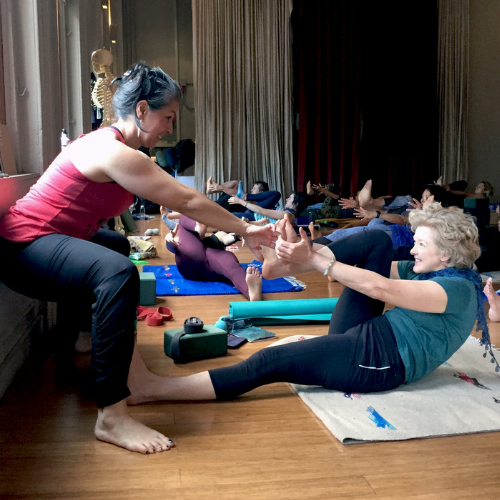
What is play and why should I, as an adult, do it?
“Play is something done for its own sake…It’s voluntary, it’s pleasurable, it offers a sense of engagement, it takes you out of time,” says Dr. Stuart Brown, head of the nonprofit called the National Institute for Play, in the article Play Doesn’t End With Childhood: Why Adults Need Recess Too.
“The act [of play] itself is more important than the outcome.”
We know it can be tough to let go of serious grown-up habits. So here are some hard facts as to why you should lighten up and get silly.
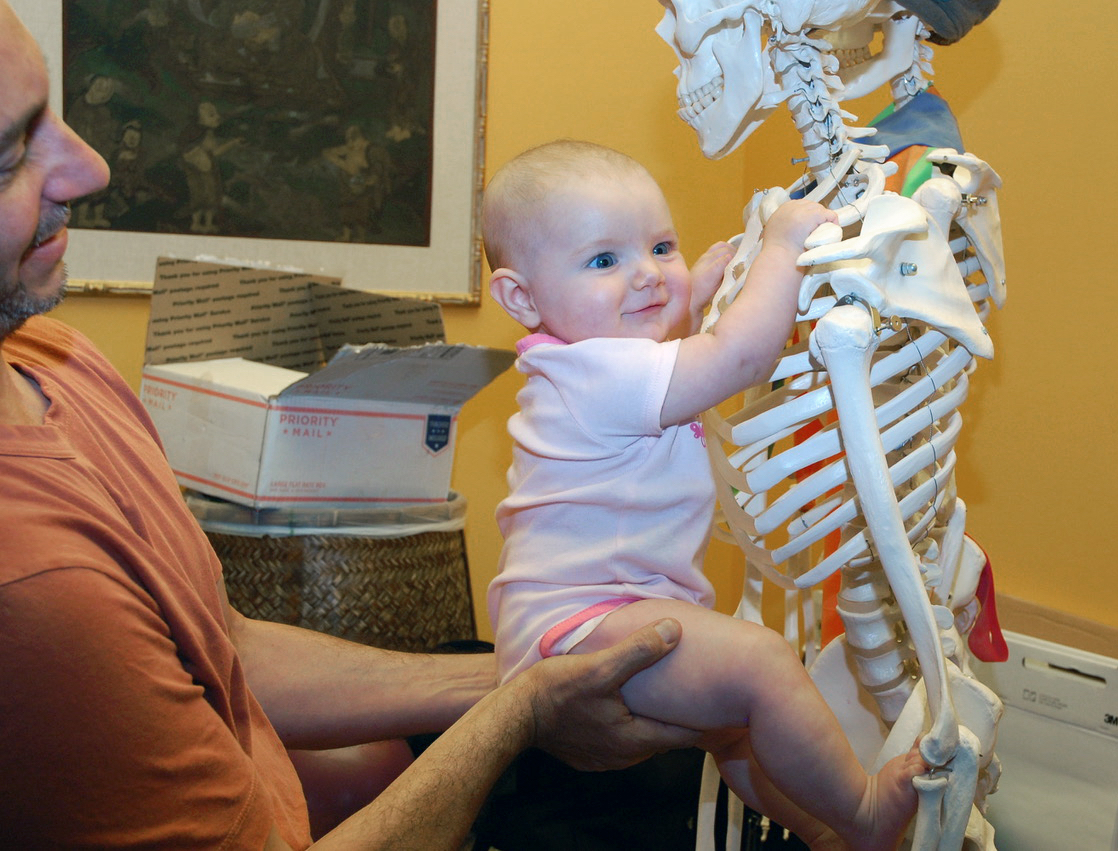
5 Science-Based Reasons Why Adults Need to Play
1. Play improves your athleticism
The spirit of play means you don’t need to be right–you don’t need to be the best. You should explore and experiment. This will guide you to greater athleticism.
Find new ways to reach, hold, grab and pull. Jog on uneven terrain. Lift abnormal objects. Let your curiosity lead you down a movement rabbit hole, leaving the typical far behind.
You will soon uncover novel ways to move that enhance fine motor skills. These skills are used to make small, coordinated movements with the hands and fingers. They depend upon the muscular, skeletal, and neurological systems all working smoothly together.
In a sense, your play becomes like cross-training. When you return to your chosen sport you will have more skill at your fingertips.
2. Play reduces your stress and increases good feelings
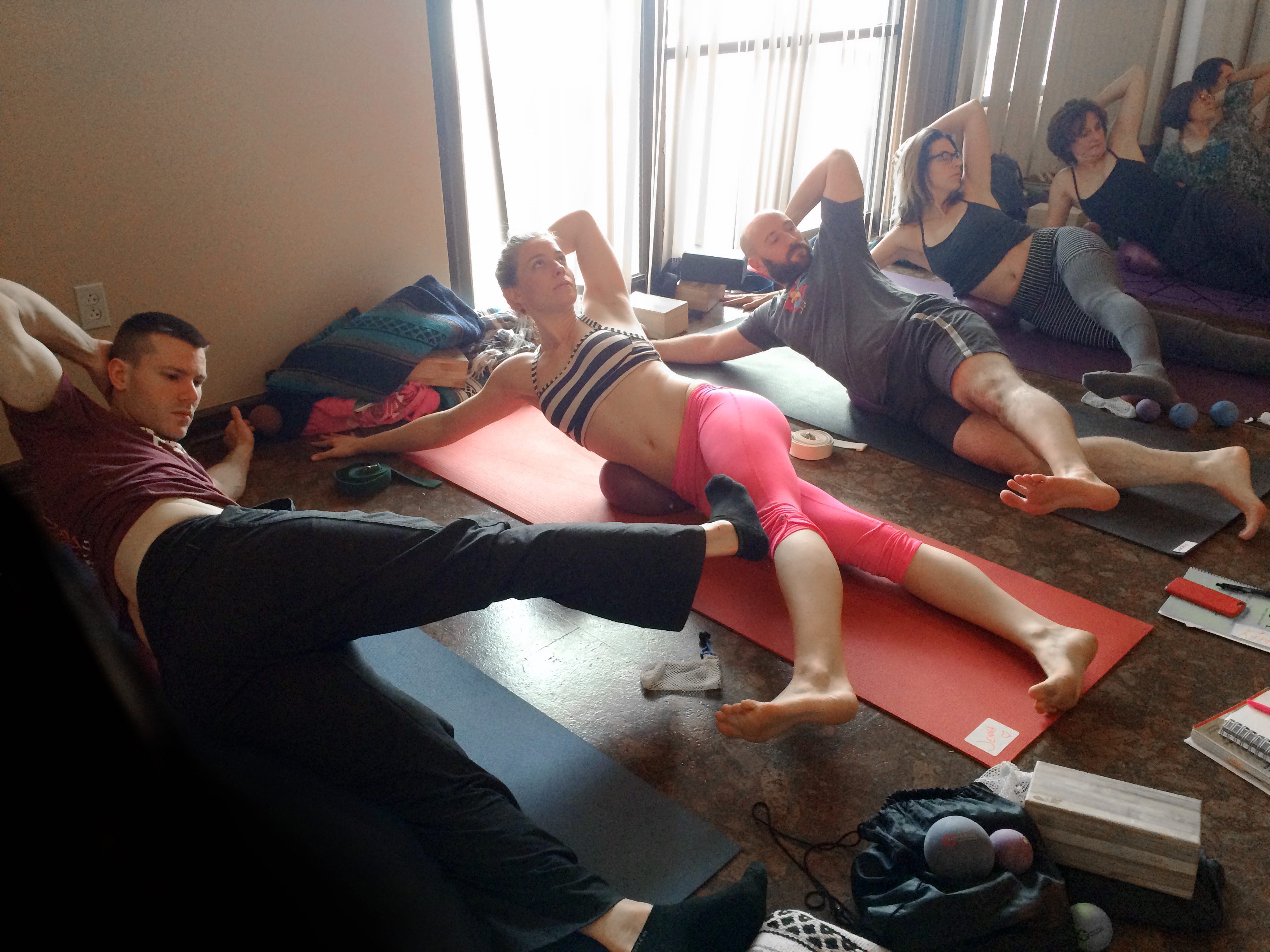
The hormones that come with play–namely endorphins which are the body’s feel-good chemicals–counteract stress hormones. So go ahead and pursue pleasure and enjoyment through your fitness.
Find ways to move, breathe, strengthen, and self-massage that soothe and delight you.
Why only obsess over that one nasty knot in your tensor fascia latae when you could also pick a sweet spot on your upper back to roll out? Why lift the same old barbell over and over when you could spend some quality time flying your giggling eight-month-old around the house?
The endorphins from your playful choices will generate an overall sense of well-being and can even act as a pain-reliever.
3. Play boosts your creativity & problem-solving skills
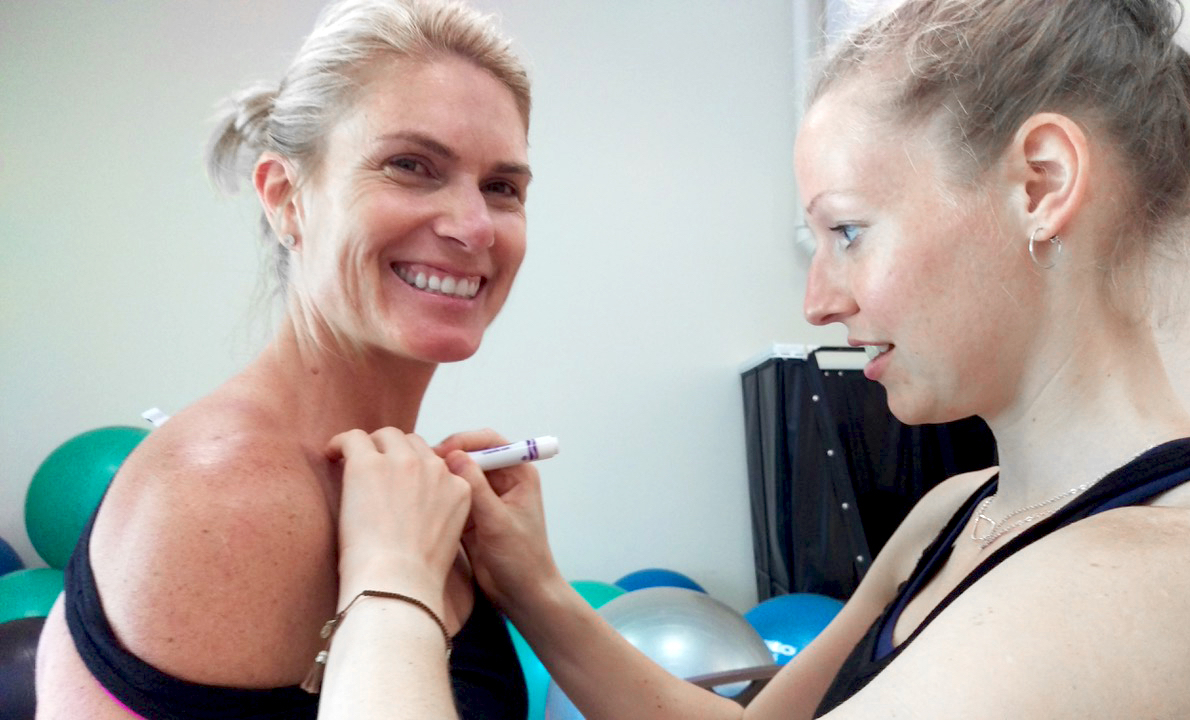
Play takes the seriousness out of your fitness practice. This sets the stage for creativity and innovation. Without the “real world” consequences, you might stumble upon unexpected breakthroughs.
Your playful approach shifts you from operating in the logical left prefrontal cortex (“left brain”) to the imaginative right prefrontal cortex (“right brain”).
In a recent sit-down with Stick Mobility® creator Dennis Dunphy and Tune Up Fitness® founder Jill Miller, both had major insights on the power of play. They agreed that play is fundamental to how they innovated old systems with new tools and techniques (like the Roll Model® Method therapy balls for Miller and the long, slightly flexible Stick Mobility® sticks for Dunphy).
“The thing with innovating is you’re always playing around,” shared Dunphy. “Just exploring the movement for itself. It’s so much fun just to grab the stick and say okay, here is our baseline, this is what we know. Now let’s see what we can develop off the baseline.”
Thus, movement innovation is born.
*Stay tuned in July for the interview with Miller and Dunphy sharing their paths to becoming movement innovators!
4. Play makes nerve impulses faster and more efficient
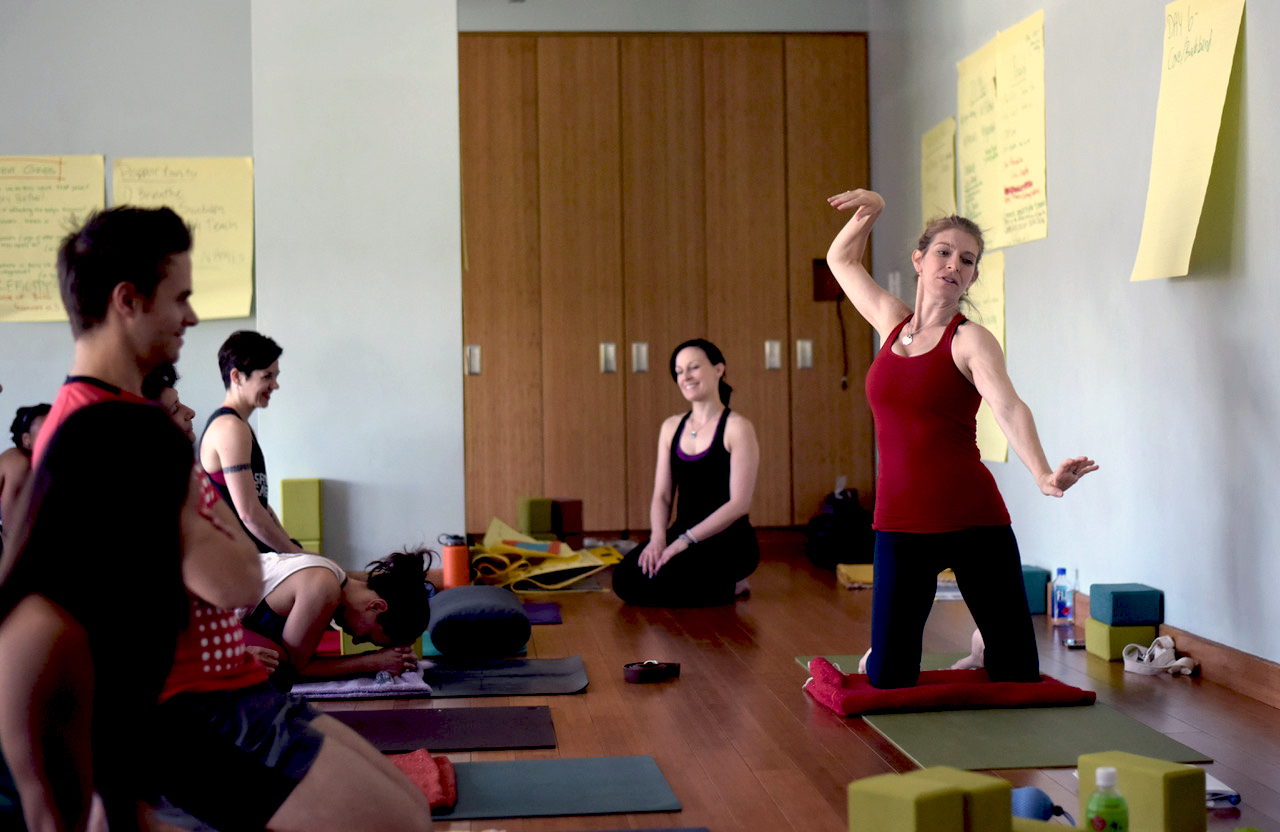
Here’s the deal: you must fail in order to grow. You must make mistakes. You must color outside the lines to refine your ability to color within them. Thus, the messiness of play sharpens your neuromuscular control.
On a neurological level, play helps you out of the rut of old movement patterns. When gone unchecked, those ruts can become ditches. (https://santaclaritalanes.com/) By scrambling up typical patterns, your body has the opportunity to lay down new myelin.
Myelin is the sheath around many nerve fibers that speeds up impulses throughout the body, while also making them clearer. From The Talent Code by Daniel Coyle:
“Struggle is not optional–it’s neurologically required: in order to get your circuit to fire optimally, you must by definition fire the circuit suboptimally; you must make mistakes and pay attention to those mistakes; you must slowly teach your circuit.” (Pages 43-44)
If you’d like to get even more advanced in your practice of play, get silly! Why run in a straight line, when you could make a game out of zig-zagging and leaping over garbage bags on the street? Why do your dynamic stretches in stony silence when you could do them to Motown classics?
Break the rules to stimulate new learning and myelin production.
5. Play fortifies your social bonds
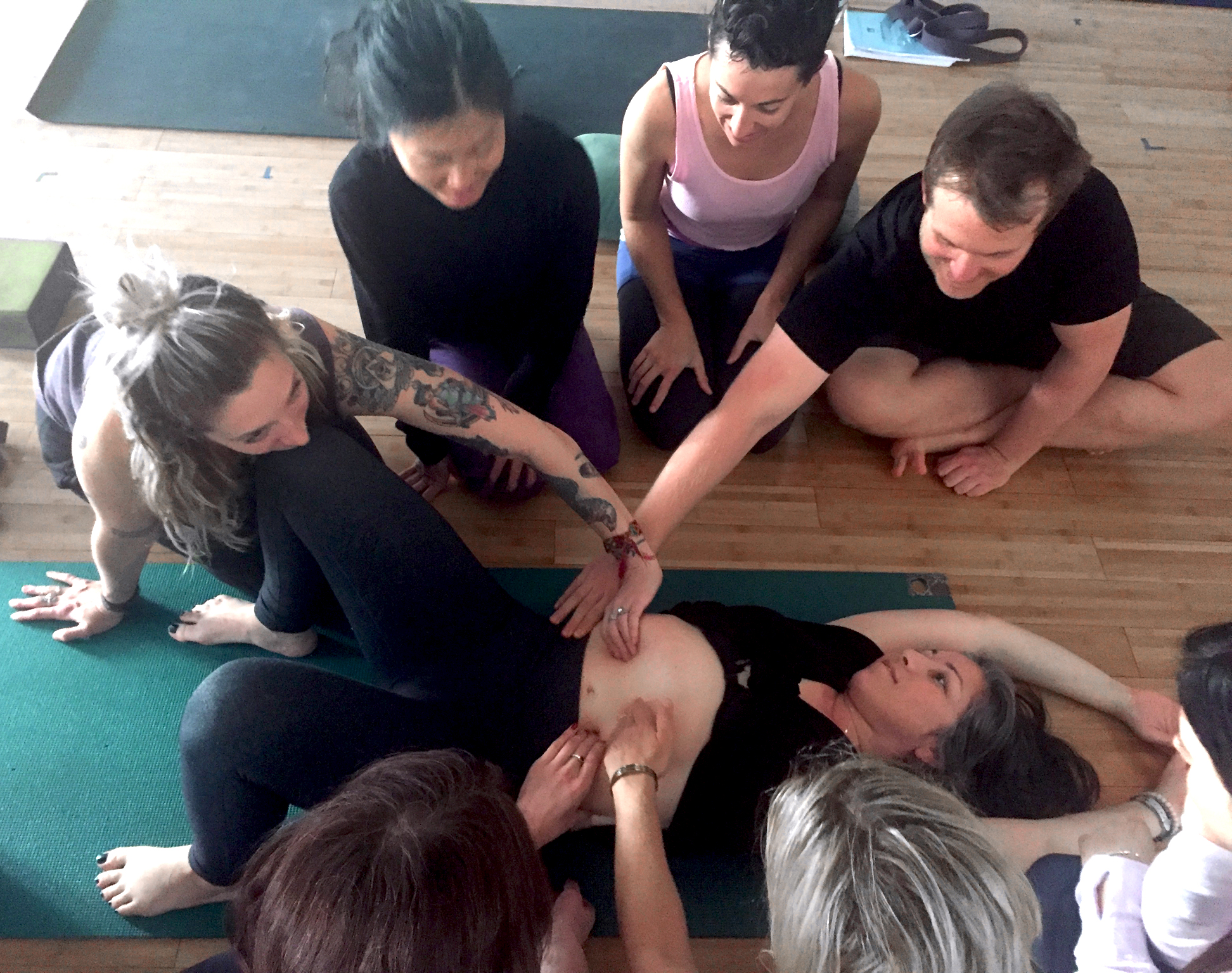
Social bonds are an important aspect of your body’s ability to regulate itself. Your Social Engagement System (SES) unconsciously picks up cues from the people around you to let you know if you’re safe or in danger.
Positive playful experiences with others involve eye contact, touch, vocal exchanges, and collaborations that provide a sense of safety. They quiet the fearful reactions within the amygdala.
“Not only can the SES override stress hormones, it can prevent the release of stress hormones by increasing the level of oxytocin, a hormone that inhibits the amygdala.”(Using The Social Engagement System by Tom Bunn L.C.S.W.)
Get closer to your tribe by playing with each other!
What’s the weirdest way that you play?
How about you? Do you find novel ways to move? Creative ways to mix up your fitness? Please share your crazy ways to play in the comments below! We’d love to be inspired by you…
Author: Ariel Kiley
Special thanks to Sandy Gross, Jill Miller and Dinneen Viggiano for images for this post.
Citations:
Bunn L.C.S.W., Tom. “Using The Social Engagement System.” Psychologytoday.com, Sussex Publishers, LLC. 13/11/2012. https://www.psychologytoday.com/us/blog/conquer-fear-flying/201211/using-the-social-engagement-system
Coyle, Daniel. “The Talent Code.” New York. Bantam Dell. 2009.
“Fine Motor Skills Activities for Adults.” Study.com, Working Scholars. https://study.com/academy/lesson/fine-motor-skills-activities-for-adults.html
Robinson et al. “The Benefits of Play for Adults: How Play Benefits Your Relationships, Job, Bonding, and Mood.” Helpguide.org, Helpguide Org International. 11/2018. https://www.helpguide.org/articles/mental-health/benefits-of-play-for-adults.htm
Related Article: On Becoming an Empowered Educator: It Starts With Your Practice
Learn more about our Therapy Ball Products and Programs
Interested in video and blog content targeted to your interests?

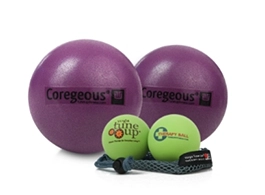
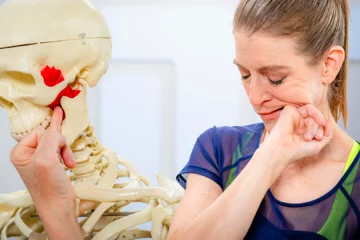
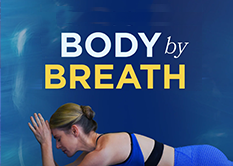



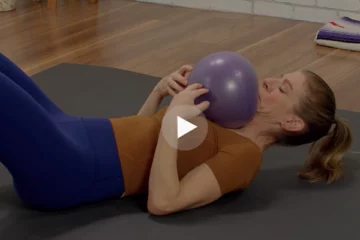
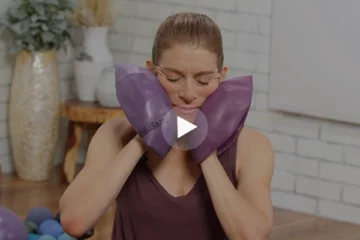
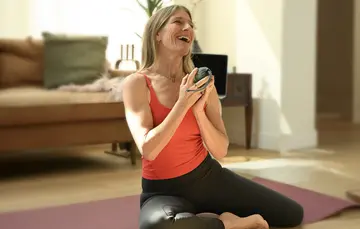

The most fun I’ve had in the past little while was jumping on a trampoline with my nieces over the Thanksgiving holiday. I didn’t care how ridiculous I looked or had any specific goal in mind. I was simply jumping. Moving my body in whatever way it felt natural with a big smile on my face! We all could use a prescription for daily play. Thank you for sharing the science behind it to remind us how important play is for creativity and wellbeing!
Yes! More play is the antidote to so many difficulties. Play can induce flow states, pull us into ventral vagal, dampen the nociceptive pain response, and lessen activity of the default mode network. It literally helps us think and act outside of the box! For me, being playful is a practice of intentional body/heart/mindset, finding joy in the mundane, and ongoing cultivation of warmth, laughter & a bit of mischief with loved ones, friends, colleagues, and acquaintences.
Oh yeah, I wanna play! Adulting is way serious and I’ve been doing it for a long time! The first point made me think of the beauty of experimenting (what would happen if…). Who knows, a gorgeous new move might be the hook I hang my next dance sequence to! I loved learning that play makes nerve impulses faster and more efficient and for these two outcomes to take place you must fail first. That is brilliant. Fail, learn, try again, repeat, repeat, repeat, and bam, faster and more efficient nerve impulses.
I am grateful for this reminder about the importance of play. When I teach, I incorporate humor and playfulness into my classes and encourage my clients laugh at themselves. But, I am not sure that I approach my own practices with the same attitude. I think the most playful I get in my phsyical activity is when I attempt to play with fetch with my dog who sometimes gets it and sometimes doesn’t), play in the waves in the ocean, and toss a football with my teen boys (which probably has happened 2x in the past year LOL), Oh and sometimes when walking I walk backwards and side step…but I don’t know if that counts because I am doing it to improve my mobility. Clearly, I need more play!
I love this! I recently got to spend time the the USA Olympic Climbing team and in an interview I asked the athletes “What advice would you like to give to the younger generation of climbers?” And one of the answers was something along the lines of “Don’t lose the play in the discipline.” I thought that was such an amazing thing to share because if we are moving/exercising because we HAVE to, it’ll be boring and we won’t ever want to do it. But if we can learn to enjoy movement, then we GET to play!
This is one of my favorite articles I’ve read thus far on here! I LOVE being a kid- I am an age where basically all my friends have kids of all ages at this point lol. And I cannot explain how much fun I have with them. Partly because kids are so unapologetically wild and it’s so freeing. I love this take and perspective from an athletic and performance stand point. It’s a reminder to move in all the ways and to never lose your sense of youth!!!
Stimuler, réveiller l’enfant qui sommeille en soi…le jeu est un atout majeur pour développer la curiosité, la créativité, le lien social qui a été mis à rude épreuve ces dernières années. Je n’avais pas pris conscience qu’il était aussi un atout majeur pour la gestion du stress. Grâce au yoga tune up je réalise à quel point le yoga traditionnel est en quelque sorte rigide, sérieux et du coup à ses limites. Nous avons besoin d’un grain de folie pour être de plus en plus vivant(e)….vivre , regarder, re-découvrir avec ses yeux d’enfants…pour honorer la vie et notre enseignement .
I like to be with children to Play with Them. IT keep my Heart young.
The groups I trained, like to play the Tic Tac Toe competition game outside. Even the older, they have fun and they are very competitive.
I like to play and we can do it a lot in Yoga Tune Up. Be innovative about movement and make more fun out of it. It’s true that play makes a shift from our logical thinking to a more imaginative state. I didn’t know it can improve our athletism, it’s a plus!
There was a group of us training for a Spartan race and in addition to the bootcamp classes we also met at a local playground to practice monkey bars and pull ups. I couldn’t resist “playing” on all the other equipment. It was such a fun way to “work out.” Even now when I take my child to the playground I refuse to sit and watch and miss out on the fun. However, in this day and age it is often looked on with judgmental eyes. Just got to learn to be true to you and know you are doing yourself a favor!
I think in today’s culture, there tends to be negative judgment surrounding how much “playtime” an adult prescribes his/her own self. As someone who works for herself in an industry not particularly known for its high income opportunities, I’ve often been shamed for being able to take a week off during the year when in fact, 1. It’s usually not enough and 2. When I do create yearly, weekly, and if I’m lucky, daily playtime, I often feel my quality of life is increased and low and behold, the creativity demanded by my occupation also greatly increases.
If it’s a particularly stressful week (or month) , I try to take a beat by singing and dancing to an upbeat song to get me going again.
During my own journey of praticing Yoga and/or other disciplines I’ve found that sometimes during time I start getting bored, mixing up classes by making them playful could be a very excelent way to make them more interesting and even to learn more about them. As adults we think that we must keep a grown up attitude and we forget about the playful part of life and how this can help us release stress and even get more creative and focus on our daily activities.
I love play! As a yoga instructor, I think it’s so important to move the body in all ways and even more so experience what is beyond just the yoga mat and studio. My cross-training “play” has been an ebb and flow of taking HIIT classes, cardio, and most recently beginner dance classes. All challenging, sometimes frustrating, but amazing to see what the body can learn and do over time.
I’ve read about the importance of play lately and I find it fascinating. These 5 reasons are expanding my vocabulary for telling my students (and myself) why they should include play in their lives. No matter how much I know it’s important to play, I have a strange ability squish that idea and think I must work all the time. These tips will keep convincing me why I need to keep playing. Thanks!
We’re bio-psycho-social creatures and while we’re often very busy addressing our “bio” challenges that’re realized through musculoskeletal dysfunction, we’re missing out on how we can grow, expand, and break out of our patterns mentally and socially.
Just like the moving through the same physical patterns on a daily basis can ultimately limit our physical movement and lead to repetitive stress, repetitive patterns of thought and mental execution can limit our ability to think outside of those patterns.
Thanks for this and cross-train your brain!
This was so nice to read!
I have always felt play & exploration to be such a healing component for me and many others so I was happy to get a little insight as to why 🙂
As experiencing new things come to new understanding, making my eyes opening.
“The thing with innovating is you’re always playing around”
Play for the fun of it… you don’t need to be the best. Somewhere in our lives, this message is lost as we strive to be the best in what we do but just playing for fun is somehow lost. Getting curious about how the body moves- creates opportunities for us to learn about ourselves. The fact that play and doing what you enjoy reduces stress should be enough reason to get out there and have some fun!
Dr. Brown makes some very good points with his comments. Growing up, the kids in my neighborhood would play outside everyday for the sheer enjoyment of it. Time ceased to exist while we were having fun, and whether we knew it or not, we were learning to move intelligently and constantly acquiring new skills. The more you enjoy moving, the more you will move.
Just play with no expectations..maybe just skipping out of the blue. We get so tied to the outcome that we miss the value of spontaneous movement.. laughing is medicin
Itself. Not a whole lot of chuckles at the gym……..but why?
Play is how we learn as children. We lose our sense of fun when we get older because work “defines” us and if we can’t be working if we are playing.
I’ve been very interested in the concept of play and how that affects us as adults. I tend to take life too seriously, especially with my work. My focus this summer has been to incorporate more play into my practice so that it could help me find myself creatively as a Yoga teacher. I love playing with a hula hoop and dancing. I’ve been able to let go and have fun, and it works! Thanks for the additional tips!
Playing is fun, and we forgot as adults to have fun like we did as kids. Recently played frisbee in the front yard after dinner, ran around like crazy and got a lesson from my adult kid in how best to throw it! Laughed and enjoyed the burst of energy from being active in a way that we don’t normally get to do. Important to let go of the ordinary and go back to an easier time!
Endorphins which are the body’s feel-good chemicals–counteract stress hormones.
Find ways to move, breathe, strengthen, and self-massage that soothe and delight you.
The endorphins from your playful choices will generate an overall sense of well-being and can even act as a pain-reliever.
I believe for myself, that I can learn more when I am excited and happy and not stressed out!!
As a Nurse Practitioner, I’m always telling clients to “de-stress” by going for a walk or listen to music. I never thought to tell them to just go out and play!
When I’m out in my huge front garden, I always have music playing. When a good song comes on, I’ll sing and sometimes dance, right there in the garden! It’s so freeing just being outside and having fun…even when weeding!
Play is important “medicine” when taking on aches, pains, and bigger physical challenges and traumas. It’s the spoonful of sugar that helps us process intense and uncomfortable sensations. If we would take life and exercise less serious we would have an opportunity to work and play harder with more laughter.
As kids play, they are happier, sleep better and willing able to do anything. as adults we gain more stressors, demands, and responsibility but not in taking in the ability to move different, socialize and destress in play. Play is crucial for mind and body!
Love the blog on the need to play as adults. In order to reduce my stress i love to put on music that inspires me and just allow my body to begin moving without restrictions, rules or regulations. I find myself in many unusual positions that relax my stress and create ah ha moments. I agree we all need to become more like children to blossom and grow.
Agreed. Who said fitness, or life, needs to be so serious. I like to incorporate creative, goofy dance moves when I do mobility work to warm up before a run. Singing is usually involved as well!
Couldn’t agree more! I started doing obstacle course races…they’re literally playgrounds for grown-ups! A lot of the obstacles, we used to do effortlessly as children. But as adults, we tend to overthink and hesitate. Having that playful mindset allows us to unlock the barriers which are mostly in our heads. 🙂
Fully agree
the game allows us to be all equal.
Also allows to get off the daily and let go on the performance.
This method is suitable for all ages and it is essential to be creative to incorporate the game on a daily basis.
I love looking for new ways to make daily gestures for the pleasure of seeing how far I can go and laugh at the ridiculous postures in which I place myself. Enjoy every moment to laugh and play regardless of our age!
What a beautiful reminder!
I have fond memories of my YTU training and intensive internships. The pleasure of learning and playing to learn. Allow us to play again and again teaching and in all other daily activities.
Great article, great reminder. Getting in to play is a must and one I try to incorporate into my daily life. Letting go is the challenge for me, but once I connect to move into laughter, it all comes together. Surrounding yourself with playful people, children, light hearted spirits is a must. Yoga has helped me to get more playful as I connect to myself in a deeper way.
Blessings
Melaina Landriault